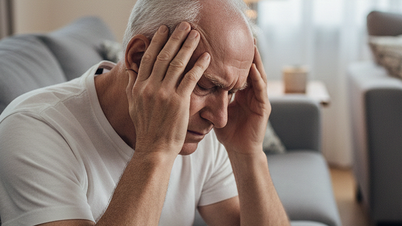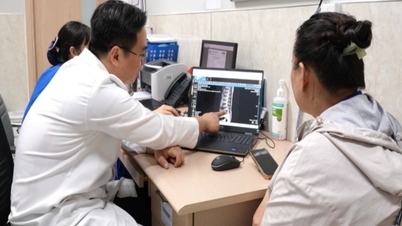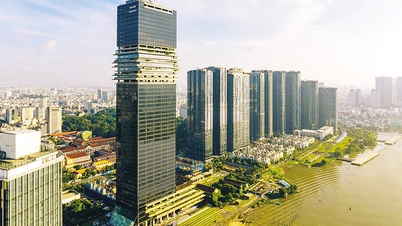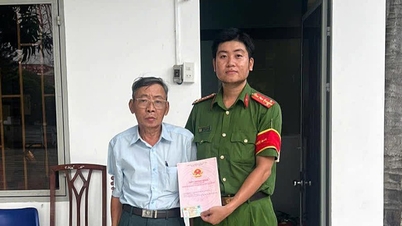 |
| According to medical experts, Burnout not treated early can lead to dangerous consequences. |
Disease of modern times
Working 10-12 hours a day, sleeping less than 4 hours, surrounded by work pressure, fear of long meetings made Ms. Chi Mai, 25 years old, exhausted both physically and mentally. She fainted in the middle of a presentation and was taken to the emergency room in a state of severe weakness. The doctor diagnosed Ms. Mai with burnout syndrome.
Not only Ms. Mai, Thanh Thuy, born in 2001, used to be an excellent student, active in all school activities. But after only two years working in the auditing industry, she became withdrawn, often tired, suffered from insomnia and was haunted by the feeling of not wanting to work.
The World Health Organization (WHO) has officially recognized burnout as a work-related syndrome, classified in the ICD-11 system since 2019. This is a state of physical, emotional and mental exhaustion, accumulated over a long period of time due to uncontrolled occupational stress.
People with burnout often feel chronic fatigue, headaches, insomnia, rapid heartbeat, digestive disorders, and are prone to illness. At work, they lose concentration, reduce performance, are easily confused, and lose motivation. Emotionally, they tend to be detached, apathetic, depressed, irritable, and often carry feelings of uselessness, low self-esteem, or failure.
In Vietnam, according to Dr. Pham Van Duong (Tam Anh General Hospital , Hanoi ), many young people do not recognize burnout correctly. They often mistake it for normal fatigue, or blame themselves for not trying hard enough.
The reason comes not only from the stressful working environment but also from the inner self of modern young people who desire early success, have too high expectations of themselves, leading to disappointment and self-denial when they do not achieve their goals. The culture of "plowing work" makes them work through the weekend, take their laptops to bed, and rarely truly separate themselves from the work cycle.
Stop before your body collapses
According to Dr. Dao Duy Khoa, Department of Neurology, University of Medicine and Pharmacy Hospital, Ho Chi Minh City, the unit regularly receives consultation and treatment for cases from 25 to 35 years old, often experiencing stress and great pressure from work, family and economy.
At the Mental Health Care Workshop held within the framework of the Belgium-Luxembourg Business Conference in Vietnam recently, speakers said that about 42% of workers regularly experience stress. Of workers alone, 22% said that personal and family life were the main causes of stress at work.
Research shows that Gen Z (those born between 1997 and 2012) is the most stressed demographic in the workplace. The same data shows that unmanageable stress affects nearly a quarter of Gen Z respondents (23%).
Burnout, if not detected and treated promptly, can lead to anxiety disorders, depression, chronic insomnia, increased cardiovascular risk, endocrine disorders, seriously affecting the quality of life and personal relationships. More seriously, the patient may experience self-destructive behavior.
Signs of burnout can start from very small things like waking up every morning feeling scared, losing motivation to go to work; seeing everything as meaningless; no longer feeling emotions about success or failure; being emotional, irritable or withdrawn...
Overcoming burnout is not just about medication or taking a short vacation. It is a journey that starts with listening to your body, adjusting your lifestyle and thinking. Get enough sleep, eat nutritious food, and spend at least an hour a day on non-work activities.
More importantly, you need to rearrange your work according to the principle of priority, learn to refuse, and balance your life and work. If the working environment is too toxic or the pressure exceeds the threshold, you should consider changing jobs or taking a break. Talking to relatives, friends, and colleagues is also an effective way to relieve stress. If negative symptoms last for more than 2 weeks, you should proactively see a psychologist.
Burnout is not a sign of weakness, it is a survival signal. Your body and mind are just telling you that you are overexerting yourself and need to rest. Recognizing and acting on it in time is the way to protect yourself from long-term consequences. “No one can run a marathon continuously without resting. You need to know when to stop to recharge,” Dr. Duong emphasized.
Source: https://baodautu.vn/canh-bao-hoi-chung-burnout-o-nguoi-tre-d357261.html


![[Photo] Parade to celebrate the 50th anniversary of Laos' National Day](/_next/image?url=https%3A%2F%2Fvphoto.vietnam.vn%2Fthumb%2F1200x675%2Fvietnam%2Fresource%2FIMAGE%2F2025%2F12%2F02%2F1764691918289_ndo_br_0-jpg.webp&w=3840&q=75)


![[Photo] Worshiping the Tuyet Son statue - a nearly 400-year-old treasure at Keo Pagoda](/_next/image?url=https%3A%2F%2Fvphoto.vietnam.vn%2Fthumb%2F1200x675%2Fvietnam%2Fresource%2FIMAGE%2F2025%2F12%2F02%2F1764679323086_ndo_br_tempimageomw0hi-4884-jpg.webp&w=3840&q=75)






























![[Video] Protecting World Heritage from Extreme Climate Change](https://vphoto.vietnam.vn/thumb/402x226/vietnam/resource/IMAGE/2025/12/03/1764721929017_dung00-57-35-42982still012-jpg.webp)









































































Comment (0)